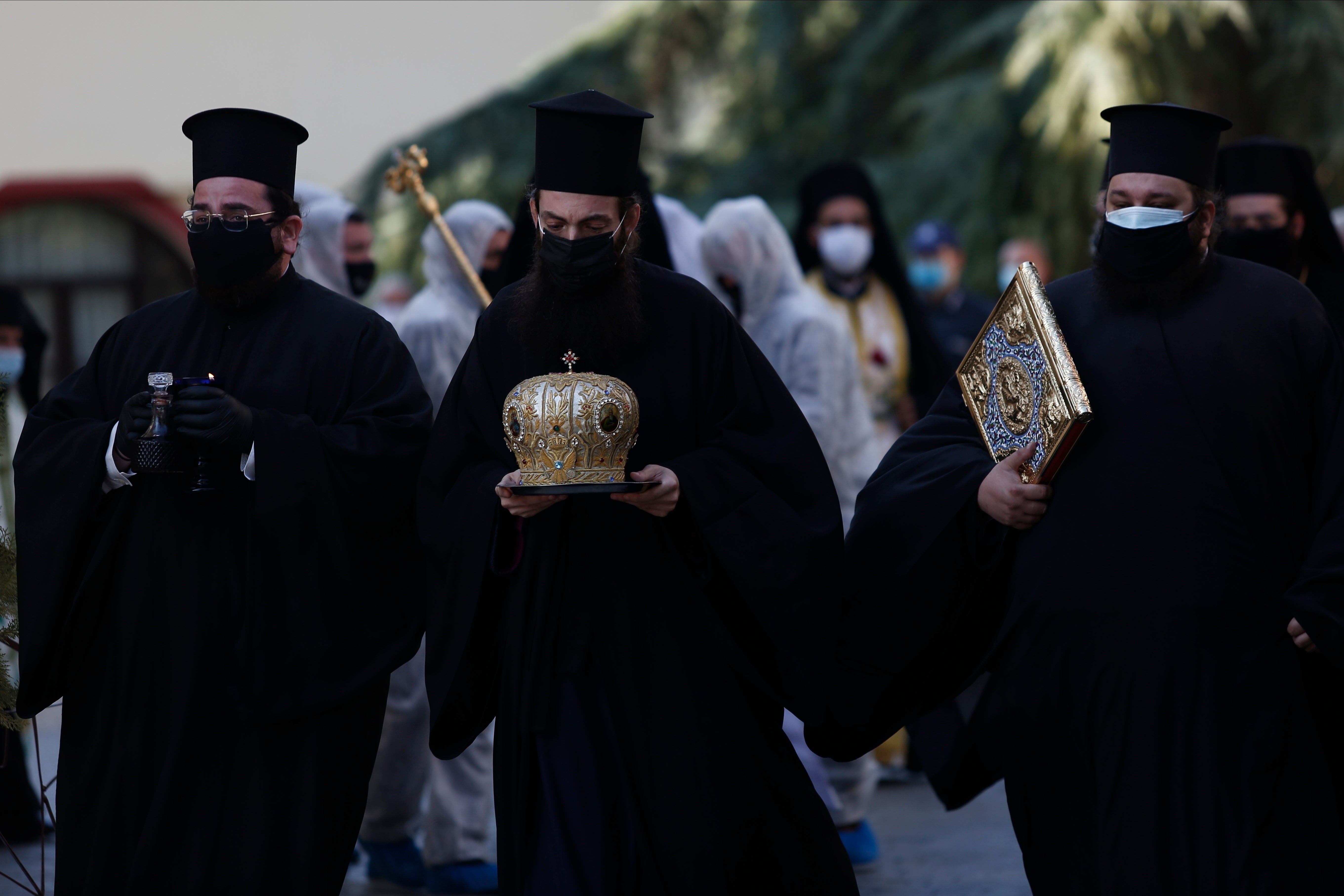Greece: Bishop's death revives debate on communion safety
A senior clergyman in Greece’s Orthodox Church has been buried after dying of COVID-19, reviving a debate over the safety of receiving communion before the Christmas season

A senior clergyman in Greece’s Orthodox Church was buried Monday after dying of COVID-19, reviving a debate over the safety of receiving communion before the Christmas season.
Metropolitan Bishop Ioannis of Lagadas, 62, was an outspoken advocate of maintaining communion ceremonies — at which worshippers are given bread and wine with a shared spoon — during the pandemic, arguing that there was no risk of transmission. His stance was backed by other church officials.
The town of Lagadas, outside Greece’s second-largest city of Thessaloniki, is a northern region experiencing the highest rate of infection in the country.
Churches across Greece are closed as part of a three-week nationwide lockdown that started Nov. 7, but are due to reopen before the Christmas period.
The Church’s governing Holy Synod said Monday that it was complying with public safety restrictions, and hit back at critics who have accused the church of acting irresponsibly.
“Certain aspiring leaders of public opinion are insisting in a neurotic manner on concentrating exclusively on Holy Communion ” a statement from the Synod said. “They cite unscientific correlations with the spread of the coronavirus, in defiance of epidemiological evidence.”
Greek health experts have mostly avoided commenting on church practices, but have noted that World Health Organization guidelines list saliva as a leading means of contamination.
Christos Giannoulis, a Thessaloniki lawmaker for the left-wing Syriza party, said the conservative government should have sought stronger support from the Church in its public health campaign.
“I do believe places of worship have contributed to the rapid spread of the pandemic though they are certainly not the only one: Add that to overcrowding on public transport, crowding outside schools, and the tragic lack of testing and we are where we are now,” he told The Associated Press.
“If the Church had been the lead advocate for wearing masks, for example, things might have been different now.”
___ Derek Gatopoulos reported from Athens.
___ Follow Costas Kantouris at https://twitter.com/CostasKantouris and Derek Gatopoulos at https://twitter.com/dgatopoulos
___
Follow AP’s coronavirus pandemic coverage at http://apnews.com/hub/coronavirus-pandemic and https://apnews.com/UnderstandingtheOutbreak
Bookmark popover
Removed from bookmarks